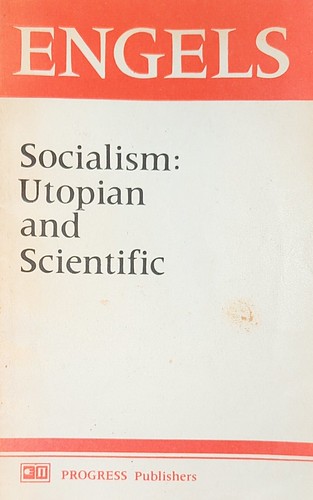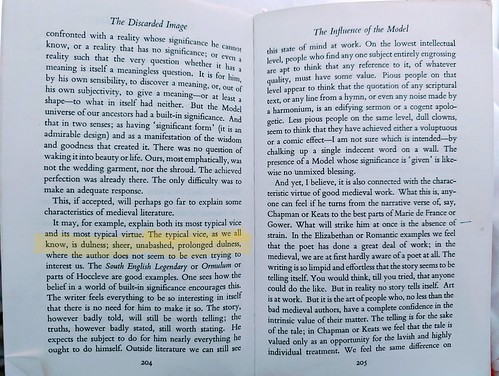
FFS, why am I reading this stuff? Mostly, because this slender pamphlet has turned up again in the chaos of our house move. If you're interested in an in-depth or - heavens forfend - sympathetic and knowledgeable review of this stuff, look elsewhere. I knew before I started that I was going to despise it, and only bothered read it to find out why. Should you wish to read the thing yourself, you can, courtesy of
marxists.org. Wiki has
an uninteresting article with no real analysis from which I'll leave you to find the historical context.
My edition was printed in the late and distinctly unlamented USSR.
As befits any kind of socialst work, it begins in factionalism: it was written as part of the forgotten conflict of
Anti-Dühring. We then get large slabs of turgid historical analysis, some of it direct quotes from Marx himself. For example "
The real progenitor of English materialism is Bacon. To him natural philosophy is the only true philosophy, and physics based upon the experience of the senses is the chiefest part of natural philosophy. Anaxagoras and his homoeomeriae, Democritus and his atoms, he often quotes as his authorities. According to him the senses are infallible and the source of all knowledge. All science is based on experience, and consists in subjecting the data furnished by the senses to a rational method of investigation." Which is all spiffy, but Democritus's atomism, though it turned out to be correct, had fuck all to do with observation; it was made-up like so much of antient Greek physics (see-also:
Après ma mort, je ferai tomber une pluie de roses). So it is weird to see Engels uncritically quoting Marx apparently talking bollox. And all of it irrelevant to his purpose, as far as I can tell.
Engels is convinced that in "Dialectics" he has found some interesting and valuable new way of thinking. In attempted proof of which he attempts to co-op science:
Nature is the proof of dialectics, and it must be said for modern science that it has furnished this proof with very rich materials increasingly daily, and thus has shown that, in the last resort, Nature works dialectically and not metaphysically; that she does not move in the eternal oneness of a perpetually recurring circle, but goes through a real historical evolution. In this connection, Darwin must be named before all others. He dealt the metaphysical conception of Nature the heaviest blow by his proof that all organic beings, plants, animals, and man himself, are the products of a process of evolution going on through millions of years. But, the naturalists, who have learned to think dialectically, are few and far between, and this conflict of the results of discovery with preconceived modes of thinking, explains the endless confusion now reigning in theoretical natural science, the despair of teachers as well as learners, of authors and readers alike. This is of course drivel.
Dialectic is
a discourse between two or more people holding different points of view about a subject but wishing to establish the truth through reasoned argumentation. Dialectic resembles debate, but the concept excludes subjective elements such as emotional appeal and the modern pejorative sense of rhetoric. But whilst the idea of striving for the truth by allowing different viewpoints to contend is indeed valuable, this isn't a lesson that communism managed to learn. And of course once you've found that truth dialectics loses its value; to expound what you know can be done linearly.
Just what is Socialism, though? I'm glad you asked, because big E has the answer: so now modern industry, in its complete development, comes into collision with the bounds within which the capitalist mode of production holds it confined. The new productive forces have already outgrown the capitalistic mode of using them. And this conflict between productive forces and modes of production is not a conflict engendered in the mind of man, like that between original sin and divine justice. It exists, in fact, objectively, outside us, independently of the will and actions even of the men that have brought it on. Modern Socialism is nothing but the reflex, in thought, of this conflict in fact; its ideal reflection in the minds, first, of the class directly suffering under it, the working class. I hope that makes it clear for you. Alas for me it doesn't, so I'm forced to think for myself. And what comes out, in quote after quote in the little pamphlet, is: socialism is not liking capitalism. You don't actually have to have any clear idea of what socialism actually is - towards the end, it turns into unicorns-farting-rainbows while the state withers away - but you do need to know what you hate; which is increasing prosperity.
 A placeholder post to keep Tom off my back while I write up Aristotle's Physics3.
A placeholder post to keep Tom off my back while I write up Aristotle's Physics3.


